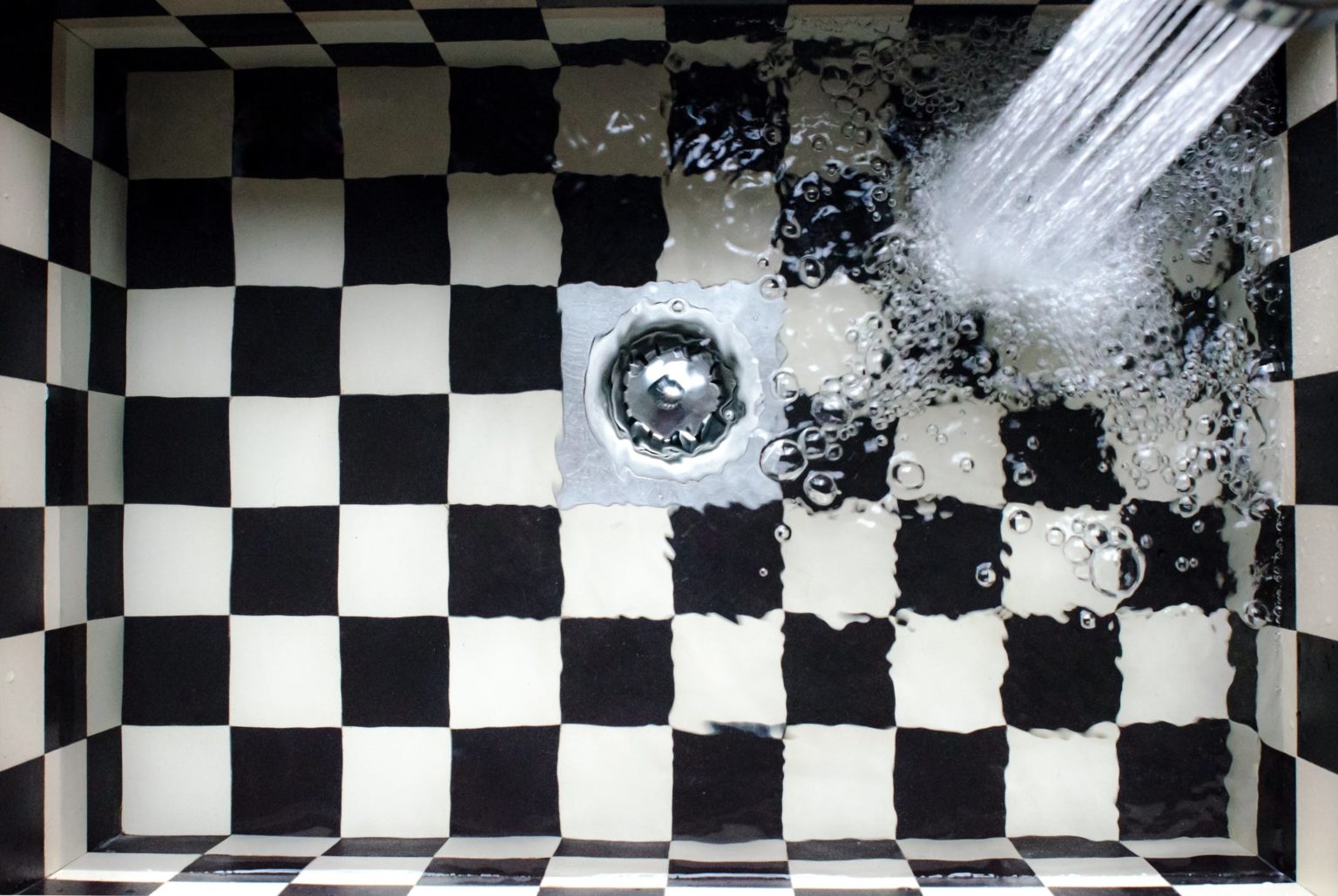If your sink, bathtub or toilet drains slowly, you could be dealing with an important clog that needs immediate attention. Cleanup services should be sought to address it as soon as you notice an issue.
An effective, nontoxic cleaner may be the key to clearing away clogs. If chemicals don’t appeal to you, try baking soda and vinegar or boiling water instead.
Slow Drainage
Slow drains are often an early telltale sign of trouble with your plumbing system, and should never be ignored as a potential indicator. They could signal an underlying issue which requires professional intervention to resolve, so take note!
There are various factors that could contribute to slow sink and bathtub drainage, including hair and soap scum buildup, clogged pipes and worn-out older pipes. While some problems can be addressed with simple DIY measures at home, others need professional repair from licensed plumbers.
Cleanliness and maintenance are integral for maintaining an effective drainage system. If left uncovered and neglected, bacteria and germs could develop and cause irreparable damage to your plumbing lines.
Chemical drain cleaners can damage both your plumbing and septic systems, so opt instead for non-chemical solutions like BioOne which contains live vegetative microbes to break up build-up in household drains and restore normal flow.
Rinsing the drain with hot water is another effective solution, as this will loosen and break up clogs before they have time to form a blockage. To make sure this method works effectively, run regular streams of hot water down both your sink and tub drains to get maximum benefit from this approach.
If your sink or bathtub drain is taking too long to empty, try unhooking its stopper (usually a metal rod with a small nut and clip attached) as this may trap hair or other debris and slow draining down significantly. Over time, stoppers may become clogged up with hair and debris which will block drains over time.
One method for clearing away buildup on metal stoppers is to spray them with a solution composed of vinegar and baking soda. This will break up soap scum buildup while simultaneously cleaning them out and rejuvenating their look.
Use vinegar, lemon juice, and dish soap to unclog your drain. Their acidity will break up any debris clogging your pipes while hot water will flush it away.
Stinky Drains
If your bathroom or kitchen sink emits an unpleasant odor, a drain clog could be to blame. While this might not sound pleasant, you can easily rectify this problem and restore fresh scent to your drains.
Stinky drains may arise for various reasons, but most commonly when food particles, hair, soap residue or other debris clog up your drain. As these materials accumulate they attract bacteria that produce foul odors that contribute to an unpleasant experience for users.
One of the best ways to prevent an unpleasant-smelling drain is through regular drain cleanings. Baking soda, lemon juice and commercial cleaners can all help your drain stay fresh-smelling; alternatively you could try pouring tablespoons of baking soda directly down your drain periodically in order to absorb odors before they have time to settle in.
Vinegar can also help deodorize drains that stink. It works to break through grease build-up while killing some odor-causing bacteria. Use about four cups of vinegar per drain odorization session; pour half into each drain and run it for one minute each time.
If your drain is especially blocked up, use a drain snake. This flexible metal tube can be fitted into your drain and used to force downward in order to break up clogs before being taken out and stored away for later use.
Try performing a quick drain cleaning procedure with hot water, baking soda and white vinegar – this should work if your drain contains just a small amount of standing water.
Fizzing and foaming of baking soda and vinegar together will help break up clogs in your drain while dislodging any bacteria causing foul odors that might be lurking there. After cleaning your drain thoroughly with these solutions, be sure to flush away all excess baking soda and vinegar by running warm water through it again to clean away any leftover fizzing and foaming action.
If your drain still stinks after following these methods, reach out to a professional plumber immediately. They can diagnose the cause and work to quickly and effectively repair it.
Fruit Flies
Fruit flies could be an indicator that there is an infestation in your home, as they have a propensity for laying their eggs on overripe fruit and vegetables, neglected spills or sugary spots.
Fly infestations can quickly develop within days and should be addressed immediately to stop further outbreaks from taking hold. There are various strategies you can employ to quickly eliminate an infestation and stop further problems from cropping up again.
Clean up any leftover food scraps left behind in the refrigerator or pantry that attract fruit flies, and make sure all trashcans are sealed and emptied regularly.
Traps can also help eliminate fruit flies quickly and efficiently. Simply fill a jar with wine and set it near where fruit flies tend to gather for maximum effectiveness.
One method involves heating some milk mixed with granulated sugar and adding some dish soap as well as black pepper for garnish. The sugar helps adhere to flying insects while the soap makes the liquid sticky enough that they cannot escape from it.
Hydro-jetting is a plumbing procedure that uses high pressure water blasts to blast away build-up from pipes and drains, creating an extremely effective cleaning agent. Professional plumbers or drain cleaners should perform hydro-jetting for best results.
Next, inspect sink drains and garbage disposals for any clogs that might attract fruit flies. If they’re blocked, pour boiling water down them before using a metal pipe brush to unclog any areas hiding food for fruit flies.
Fruit flies can be managed effectively by washing all fresh produce as soon as it enters your house, to prevent egg-laying and adult fruit fly infestation in your home.
Sewage Smells
When dealing with a sewer odor in your home, it is crucial that you find its source and take measures to resolve it as soon as possible in order to avoid larger plumbing issues as well as ensure the smell subsides for good.
Sewage odors can have many causes, and the best way to pinpoint their source is to examine your drain system carefully. Clogs in drains are often responsible for such smells; however, other issues could also be present that contribute to them.
Clogged drains may be due to tree roots or other debris clogging up your city’s sewer system, making access difficult. To remedy the situation, call in professional plumbing assistance as this task can be challenging to accomplish on its own.
Septic tanks may also contribute to an unpleasant sewage odor, as sewage gas from your wastewater could escape and collect in your septic tank, creating an offensive smell which could potentially lead to headaches, nausea or other health complications if inhaled.
Other possible causes of sewage odor include broken, cracked, or corroded pipes as well as the improper flushing of materials that should not go down your toilet. Such issues should be immediately rectified as any resulting sewer gas leak could do considerable damage to your home.
An improperly installed pipe could allow waste to leak into your basement and lead to flooding, creating an unpleasant sewage odor in your space. If this has begun happening in your space, now is the time to call a plumber and have all of the pipes checked by one.
Leaks in water traps may also contribute to an offensive smell in your room. When an unused drain dries up over time, sewer gas can leak out through its opening into your space, creating an unpleasant stench.
Biofilm accumulation often contributes to drain odors in kitchen and bathroom sinks with lots of food debris, especially kitchen sinks with an overflow. A cleaner can help clear out these drains and remove any buildup causing this odor, and eliminate its cause.
If you need help with Drain Cleaning call our Expert Drain Cleaning plumbers in Phoenix at Ben Franklin Plumbing AZ






